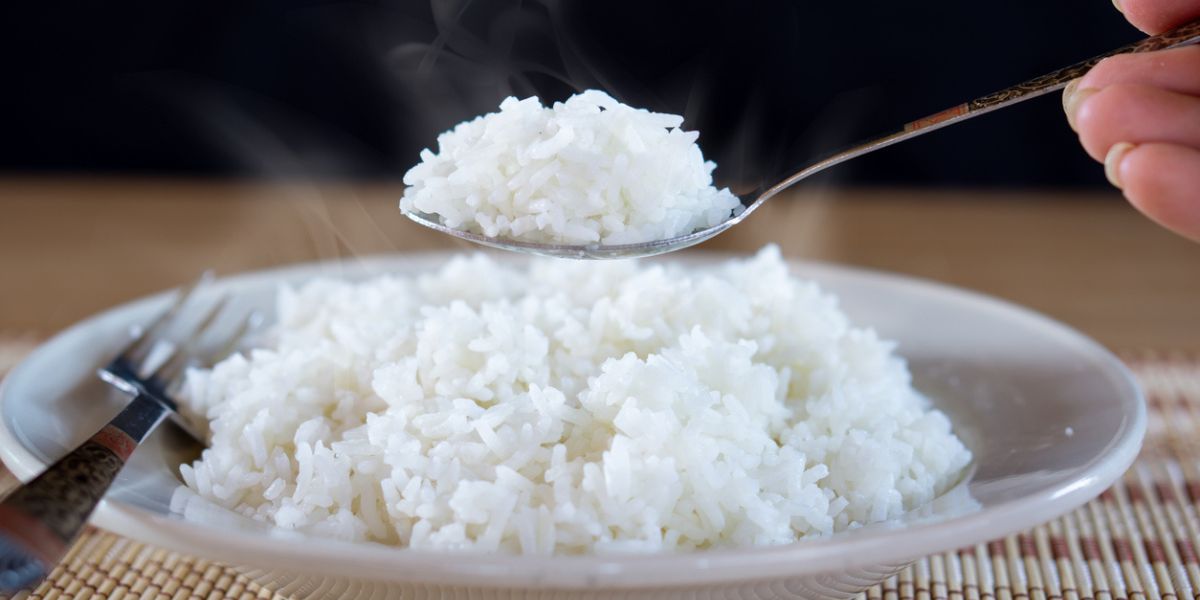Published Oct 02, 2025 | 11:36 AM ⚊ Updated Oct 02, 2025 | 11:36 AM

Cooked rice. (iStock)
Synopsis: A recent study flagged worrying links between India’s food habits and rising rates of diabetes and obesity. The research highlighted a distinct pattern in South India, where diets remain heavily dependent on rice and refined cereals, coupled with gaps in protein and fat quality.
A recent Indian Council of Medical Research–India Diabetes (ICMR-INDIAB) study, published in Nature Medicine, flagged worrying links between India’s food habits and rising rates of diabetes and obesity.
While the findings mapped trends across the country, the research highlighted a distinct pattern in South India, where diets remain heavily dependent on rice and refined cereals, coupled with gaps in protein and fat quality.
The study pointed out that southern states showed a strong reliance on white rice as the staple, with lower intake of protective foods like pulses and diverse proteins. It also noted that fats such as coconut oil and subsidised palm oil contribute to higher saturated fat levels in the region.
Even the revival of millets in some states has a limited impact, since these grains are often consumed in milled form, which reduces their nutritional value. Together, these dietary patterns underlined why South India faces a particular vulnerability to metabolic diseases.
The study highlighted clear dietary contrasts between the northern and southern parts of India. While wheat dominates the plate in much of the North and West, the South continues to rely overwhelmingly on rice as its staple.
Even though this difference in cereal consumption is cultural, it has health implications, with rice-based diets showing stronger associations with diabetes and related metabolic conditions compared to wheat-heavy diets.
Within the South, rice is the backbone of daily meals in Tamil Nadu, Andhra Pradesh and Telangana, contributing the largest share of calories in the diet. The dependence on this single refined cereal comes at the cost of dietary diversity, with limited contribution from pulses, legumes and other protective foods.
The carbohydrate load in these states remains higher than the national average, placing their populations at particular risk of lifestyle diseases.
Kerala presented its own unique picture. The state was found to have the lowest plant protein intake in the country, at just 5.7 percent of total energy, reflecting an imbalance in the overall diet.
The high consumption of saturated fat is added to this, driven by the use of coconut oil in household cooking. Together, these factors point to a pattern where both protein quality and fat composition are suboptimal.
Karnataka stood slightly out from its southern neighbours due to a greater retention of millets and whole grains in the diet. Millets contribute a meaningful share of energy intake in parts of the state, making Karnataka more cereal-diverse than Tamil Nadu or Kerala.
However, the study noted that many of these grains are consumed in milled form, which diminishes their nutritional advantage. Compounding this, the state also reported some of the highest added sugar intakes in the region, pushing overall dietary risk upwards.
Taken together, the southern diet remains heavily imbalanced, dominated by refined rice, burdened by excess saturated fats from coconut and palm oils, and short on quality protein sources. Even where millets are present, their benefits are often lost through processing.
The findings underlined why South India, despite its diversity of food cultures, emerges as one of the regions most vulnerable to diet-related metabolic disease in the country.
Shashikant Iyengar, a metabolic health coach and founder of Metabolic Health India, emphasised that the new ICMR–INDIAB study confirmed what experts have been saying for over a decade: “India’s heavy dependence on refined carbohydrates, particularly white rice, is directly linked to higher diabetes and obesity risk”.
According to him, the issue is not the type of carbohydrate but the total carbohydrate load. “Whether it comes from rice, wheat, or milled millet, the total percentage of carbs remains excessive,” he noted, highlighting that South India follows the same trend.
Iyengar pointed out that protein intake across India, including South India, is significantly below protective levels, averaging around 12 percent of total energy. “Protein is inadequate across India and also South India, far below what is metabolically protective,” he explained.
He added that saturated fat is often wrongly blamed for metabolic risk. The study itself, he said, showed that fat, including saturated fat, was largely neutral for diabetes risk, whereas excess carbohydrates clearly drove the health outcomes.
He also underscored a gap in the study: The role of seed oils. “The study didn’t analyse them state-wise, but India and particularly South India use large amounts of sunflower and other refined seed oils, which only worsens the omega-6:omega-3 imbalance,” Iyengar observed. This, he argued, is an important factor in diet-induced inflammation that remains underappreciated.
Looking forward, Iyengar outlined actionable steps specifically for South India. He urged reducing total carbohydrates rather than relying solely on substituting rice with milled millets, promoting portion control and plate rebalancing.
He emphasised increasing protein diversity through pulses, dairy, eggs, fish, and meat, all of which are culturally acceptable and widely available in the South.
On fats, he advocated for traditional oils like ghee and coconut oil while cautioning against refined seed oils, with moderate use of cold-pressed sesame or peanut oil considered acceptable. He also stressed practical strategies to reduce added sugars from tea, coffee, sweets, and bakery items.
Finally, Iyengar called for a broader policy perspective. “Public health messaging should emphasise lowering total carbs and improving protein and fat quality,” he said, stressing that simply promoting millets will not resolve the diabetes crisis.
He concluded that a paradigm shift is essential: Less total carbohydrate, more protein, and healthier fats are the keys to reversing the metabolic health crisis in South India.
(Edited by Muhammed Fazil.)

